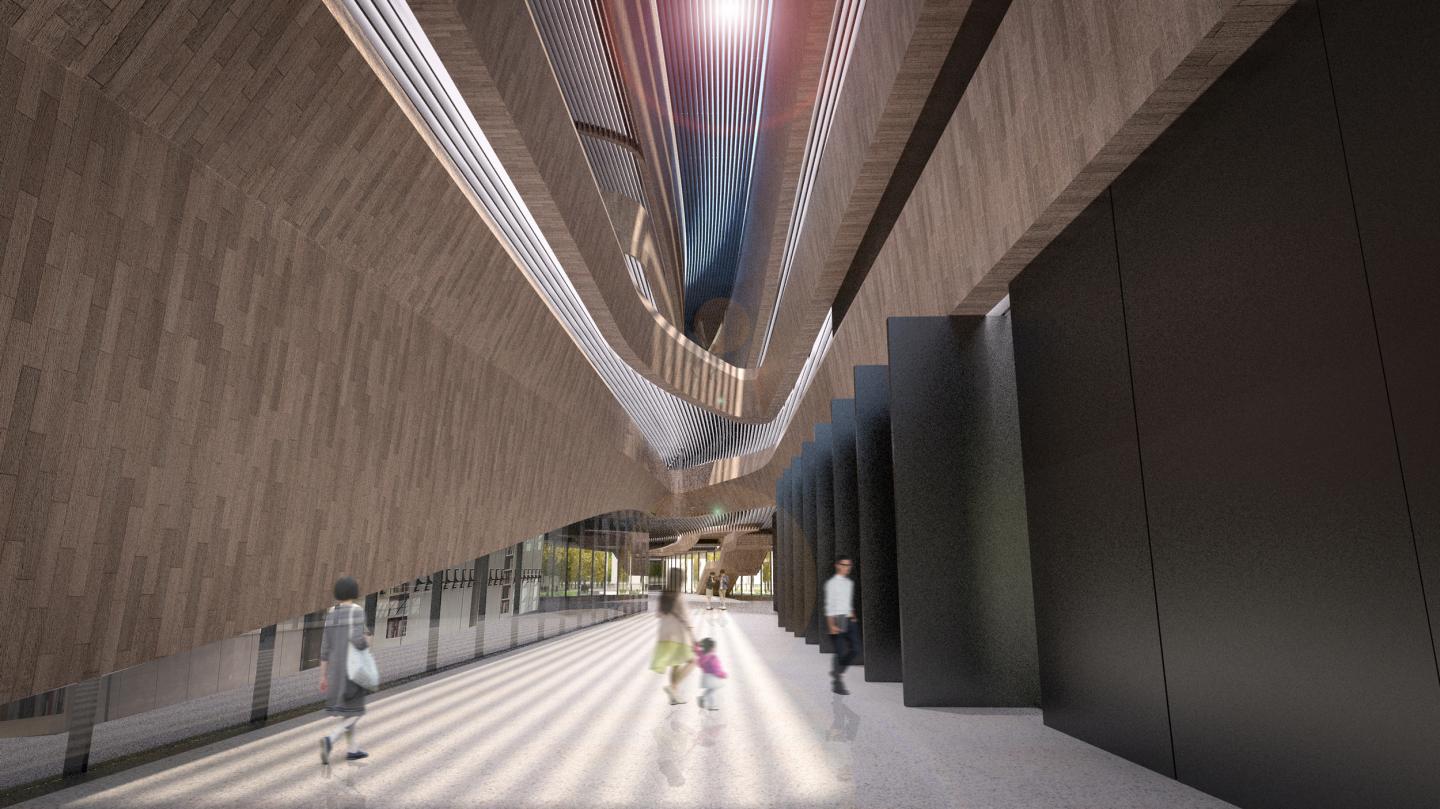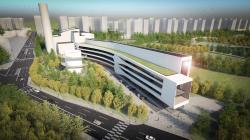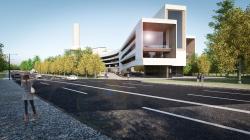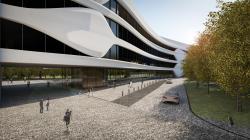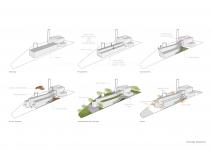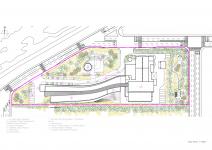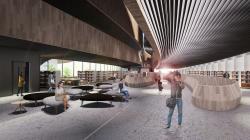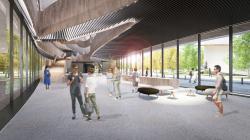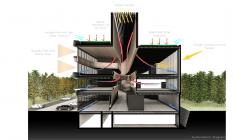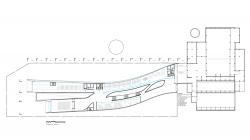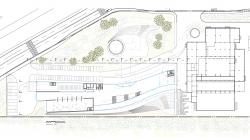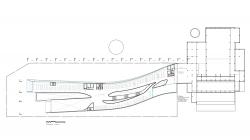Inspiration.
The City Main Library Gwangju is inspired by the neighbouring Gwangju River with its meanders and soft, liquid forms. The subtle curves contrast the industrial, monumental feeling of the old incineration plant; creating a tension between the old and the new; the industrial and the contemporary; the brutal and the soft.
Form.
The building has been carefully placed on the site in order to preserve as much as possible the existing green areas with mature trees. The form stretches from the plant building towards the West. The volume softly leans back creating a sunken courtyard protected by the prevailing winds coming from the North-West and which activates the Basement Level where the Café is located.
To add lightness and transparency to the volumes the mass has been lifted off the ground and a transparent structural façade permits cross through views into the dense forest behind the building.
Programme.
The linear form has further been split into three fingers which increase their width towards the West where premium, double-height spaces are located and where the river views have been framed into the volumes like paintings.
The South volume serves mainly as the Cultural Block with the Children’s Library on top. The North volume holds the book storage and preservation zone at the bottom close to the loading zone, offices above and the main library. All the book related functions are vertically connected with a book lift. All areas in the North part of the complex benefit from the North diffused light into the reading and working areas which will increase the comfort level of the users. The middle volume serves as a link between all the programmes.
The Training Centre has been located at the top level and is accessed via a dedicated core which will allow operating the facility in extended timings. This is the only programme on the fourth level of the building, separating it from the quieter zones.
Public Spaces.
In addition to the sunken courtyard, we envisage a plaza with a small amphitheatre on the area now taken over by the heating facilities. We would like to keep the chimney of the heating facility which could be converted into a viewing platform over the river, agricultural grounds and further away the mountains.
Connections.
The new library building attaches itself to the existing incineration plant on multiple levels creating various possibilities for expansion of the programme. At the Basement level -5000mm with the café and public square the building connects to the area of the former garbage pit, dramatically dropping further till -11650mm. We envisage the main halls and spaces of the plant to be converted into exhibition spaces which will complement the cultural programme of the complex.
On upper levels connection bridges have been provided on levels +6500mm, +11500mm and +16500mm providing additional areas for expansion of all the programmes of the library.
Vehicle Parking.
Following the linear site and complex the parking is located along the curvature of the building on both sides of the access road emphasising on the linearity of the design. The loading bays are hidden within the volume of the building and the service vehicle parking is discreetly placed within a dense tree area.
Sustainability.
With the main window openings located on the North façade and with sunscreens placed on the Southside, the library is protected from overheating and as a result, less cooling will be required in the warmer months. As the areas within the building are of generous headroom a raised floor system with heating and cooling coming from below provides more energy savings. In addition, the tall atrium located in between the programme will allow for natural ventilation in the milder season, sucking out the hot air and releasing it into the outdoors.
As there is lots of rain in the summer months in Gwangju, the slightly slopped roofs are able to collect the rainwater which could be used to take care of the greenery on the top of the building and in its surrounding.
1920
0000
Type. Cultural Building
Location. Gwangju, South Korea
Date. 2019
Client. Gwangju Metropolitan City
Status. Concept Design
Size. 11,455 sqm
Lead Architects: Rolando Rodriguez-Leal, Natalia Wrzask
Favorited 1 times
